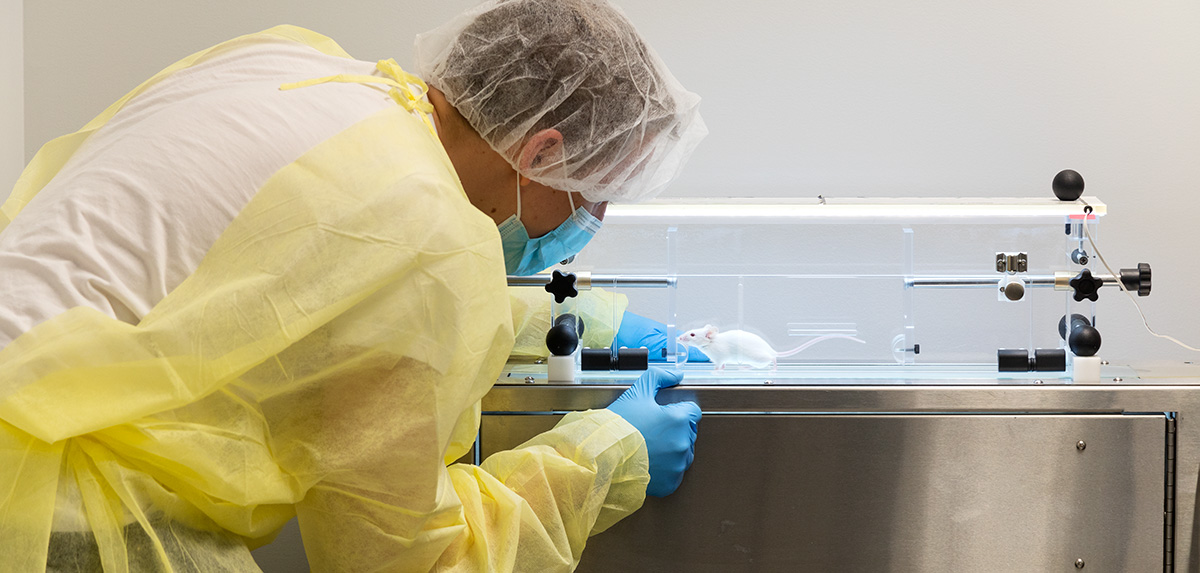About Animals in Science
Biomedical research is the pursuit of answers to medical questions.
Biomedical research is conducted to improve the quality of life and health for both humans and animals – to reduce suffering through improved methods of preventing disease, and through the development of new treatments, techniques and technologies.
The use of animals in science also focuses on the health and well-being of agricultural animals, of wildlife and of the environment.
Animal research is conducted by scientists in universities and medical, veterinary and agricultural schools, as well as federal and provincial government agencies and private companies—pharmaceutical, biotechnology and agricultural. Scientists work closely with trained veterinary technicians who have an essential role. These individuals are responsible for daily monitoring of the research animals and for providing the daily care to the animals and the facilities in which they are housed.
Outcomes of Animal Research
Animal research has played a vital role in virtually every major medical advance of the last century, for both human and animal health, including the development of:
- antibiotics for the treatment of bacterial infections (starting with the discovery of penicillin in the 1930s)
- vaccines for smallpox, tetanus, diphtheria, polio, measles, Lyme disease, hepatitis B and chicken pox
- insulin to control diabetes
- safe drugs used for anaesthesia
- a wide array of pain-relieving drugs
- chemotherapy for cancer patients
- pacemaker implants for cardiac patients
- drugs to control the progression of AIDS, as well as the initial discovery of the HIV virus
- organ transplantation techniques and anti-rejection drugs
- better treatments for conditions such as rheumatoid arthritis, Alzheimer's disease, muscular dystrophy, schizophrenia, and many forms of cancer
As new diseases, such as SARS and West Nile virus continue to appear, research plays a vital role in developing effective treatments.
Queen's Research
At Queen's, in addition to answering fundamental questions of biology and ecology, some recent animal research has focused on:
- developing new targets for cancer therapies
- implementing new therapies targeting human mobility
- developing novel gene therapies for bleeding disorders
- testing the potential for emerging cardiac therapeutics
- developing strategies to identify early markers of chronic disease (e.g. cardio-respiratory and gastrointestinal)
- developing effective treatment strategies for brain degenerative disorders

The mouse DigiGait – state-of-the-art equipment that evaluates the walking pattern of mice to evaluate treatment strategies for neurodegenerative diseases.
 About Vice-Principal Research
About Vice-Principal Research